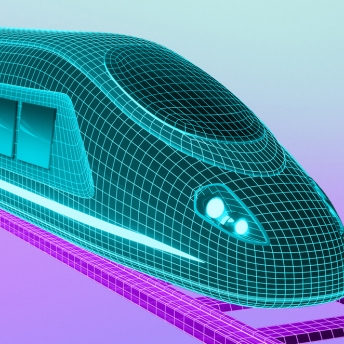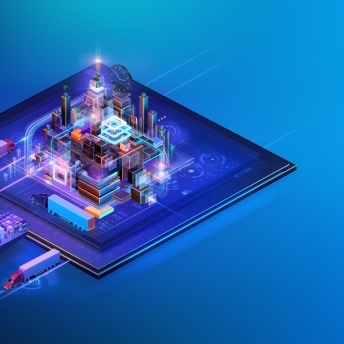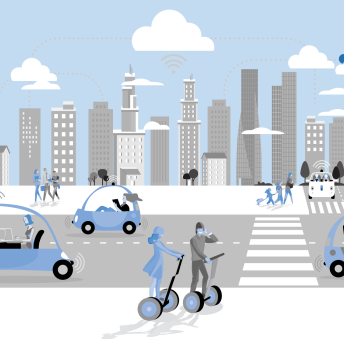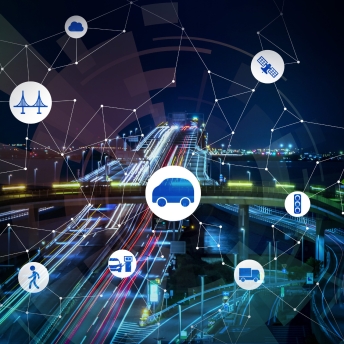Ralf Baron
Partner
Ralf works with key players in the mobility ecosystem on strategy, innovation, transformation and performance improvement.

Areas of Focus
Education
Past Experience

Ralf is a Partner at Arthur D. Little based in Frankfurt.
Ralf has more than 25 years of experience in management consulting and has worked in the mobility sector for more than 20 years. He advises leading players in the mobility industry and ecosystem on strategic orientation and performance improvement, as well as organizational change and transformation.
As global Head of Arthur D. Little’s T&T practice, Ralf works on mobility issues around the world and addresses key transportation-related topics in various cultural contexts.
CEOs and management board members regularly seek Ralf’s advice as a challenger, change manager, and coach. Ralf is a passionate team worker with strong communications skills and a highly recognized talent to manage group meetings and workshops.
Ralf has served as chairman for leading industry conferences and is a sought-after speaker for conferences and meetings.
Ralf started his career at the United Nations Headquarters in New York, working on technology assessment and innovation.
A core value that Ralf pursues in his work and private life is “respect.”

Optimistic global CEOs focus on people and skills in an AI future

Positive in an uncertain world: Confident CEOs reskill companies for AI-driven growth


Embracing uncertainty, driving growth

Turning Turmoil to Advantage: How CEOs Are Navigating Change to Drive Growth


Autonomous Mobility Journal Edition I I – August 2020

Aviation year zero – New non-aero revenues

Lost in transformation


The low-cost puzzle for long-haul trains

Integrated Mobility Platforms

Digital platforms in freight transportation

Integrierte Logistikdienstleister unter Druck

The Headquarters Redesign

Converging on the Future

Smart Cities – Turning challenge into opportunity

The Company of Tomorrow

Ralf is a Partner at Arthur D. Little based in Frankfurt.
Ralf has more than 25 years of experience in management consulting and has worked in the mobility sector for more than 20 years. He advises leading players in the mobility industry and ecosystem on strategic orientation and performance improvement, as well as organizational change and transformation.
As global Head of Arthur D. Little’s T&T practice, Ralf works on mobility issues around the world and addresses key transportation-related topics in various cultural contexts.
CEOs and management board members regularly seek Ralf’s advice as a challenger, change manager, and coach. Ralf is a passionate team worker with strong communications skills and a highly recognized talent to manage group meetings and workshops.
Ralf has served as chairman for leading industry conferences and is a sought-after speaker for conferences and meetings.
Ralf started his career at the United Nations Headquarters in New York, working on technology assessment and innovation.
A core value that Ralf pursues in his work and private life is “respect.”

Optimistic global CEOs focus on people and skills in an AI future

Positive in an uncertain world: Confident CEOs reskill companies for AI-driven growth


Embracing uncertainty, driving growth

Turning Turmoil to Advantage: How CEOs Are Navigating Change to Drive Growth


Autonomous Mobility Journal Edition I I – August 2020

Aviation year zero – New non-aero revenues

Lost in transformation


The low-cost puzzle for long-haul trains

Integrated Mobility Platforms

Digital platforms in freight transportation

Integrierte Logistikdienstleister unter Druck

The Headquarters Redesign

Converging on the Future

Smart Cities – Turning challenge into opportunity

The Company of Tomorrow
More About Ralf
- Ludwig-Maximilians-Universität MünchenM.A. Political Science
- United Nations, Centre for Science and Technology for Development (New York)Scientific Officer
- Institut für Organisationsforschung und Technologieanwendung (IOT)Researcher and Management Consultant
